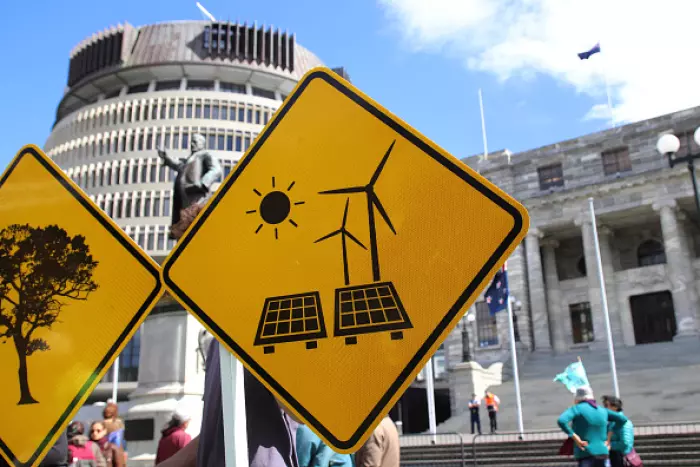Much has been made over recent years about the cost of climate change.
What can we afford to do?
What is the scale of the change needed?
How should it be paid for?
When we released the Climate Change Commission’s draft advice at the beginning of last month, we delivered the message that the actions in it are technically feasible, socially acceptable and most importantly for the question of cost – economically affordable.
Affordable? Really?
This message has surprised many people – but understanding the economics of change has been central to our analysis. Economics has helped us to understand the choices and trade-offs Aotearoa faces.
While climate change has been on the global radar since the 1992 Earth Summit in Rio, it is only more recently that we’ve seriously applied economics to look at how we can address it.
The 2006 Stern Review for the UK Government was an important step in this regard – bringing together science and economic theory to provide a clear policy prescription for climate action.
Closer to home, in 2016 the Global Legislators Organisation for a Balanced Environment (GLOBE) NZ Chapter, a bi-partisan group of MPs, commissioned the first assessment of what the economic implications of net-zero might be for Aotearoa.
The government has built on that analysis through the Productivity Commission report and work to support the Zero Carbon Act. This body of economic analysis has been essential to our work over the last year, and we have continued to add to it.
Lowest-cost cuts won't cut it
Cost can't be the sole driver for climate action.
Assessing the relative priorities for climate mitigation based on their cost-effectiveness has been a common approach – and one that has a strong theoretical basis.
Likewise, if we rely solely on markets to determine what action to take, we will fail to achieve the change that is needed.
A widespread appetite for change is what drove the Zero Carbon Act and established the Climate Change Commission. It is our role to provide independent advice to the government on the emissions budgets and policy direction needed to make transitioning to a low emissions Aotearoa a reality.
Looking only at the cheapest ways to reduce emissions could end up costing us more in the long run.
Electric vehicles currently cost around $15,000 more than an equivalent car that runs on fossil fuel.
However, by 2030 we expect the cost of EVs will be the same as petrol and diesel vehicles and save owners around $12,000 in fuel and maintenance costs over their lifetime.
This means by 2030, EVs will save drivers money and eliminate emissions.
By using policy to encourage early adoption we can build the supply chain and infrastructure for EVs rather than waiting and missing out on the benefits.
Focusing solely on cost also fails to reflect the shift in economic conversations across the board in Aotearoa from the pure-cost paradigm to broader wellbeing.
Danger of being left behind
There are many vested interest in how this plays out, but the Zero Carbon Act rules out the status quo.
Countries that have adopted or announced net-zero targets account for approximately 30% of the global GDP.
This is set to increase to close to 50% as another 100 countries look to adopt similar measures.
If we don’t act, the world will leave us behind.
The work of the Commission has shown the overall impact of the transition is likely to be manageable.
This is in line with what others are finding internationally. In the United Kingdom, figures have been updated to an impact of less than 1% of GDP through to 2050, with some evidence showing the transition may increase GDP.
Answering critics
Some of the questions we are hearing about our GDP figure stem from the disparity with the Ministry for the Environment's estimates from 2019.
These showed meeting the emissions targets set then could reduce GDP in 2050 by between 5% and 8%.
The change reflects improved understanding and innovation.
Wind turbines have come down in cost by 70% since 2009 and the cost of solar panels has reduced by 90% over the same period.
As more people prioritise climate action, technology is evolving faster and becoming more available and affordable.
Fairness in transition
While our evidence tells us the transition is economically feasible and technically achievable, it also needs to be socially acceptable.
New Zealanders need to be able to see themselves in the transition.
While there will be opportunities for many, there will be impacts too.
The disruption will not be evenly felt.
At the commission, our job is to recognise those impacts and help decision-makers set targets and design policies to address them.
We provide independent advice that – while grounded in good economics – acknowledges people must be at the heart of our analysis.
Jo Hendy is chief executive of the Climate Change Commission










